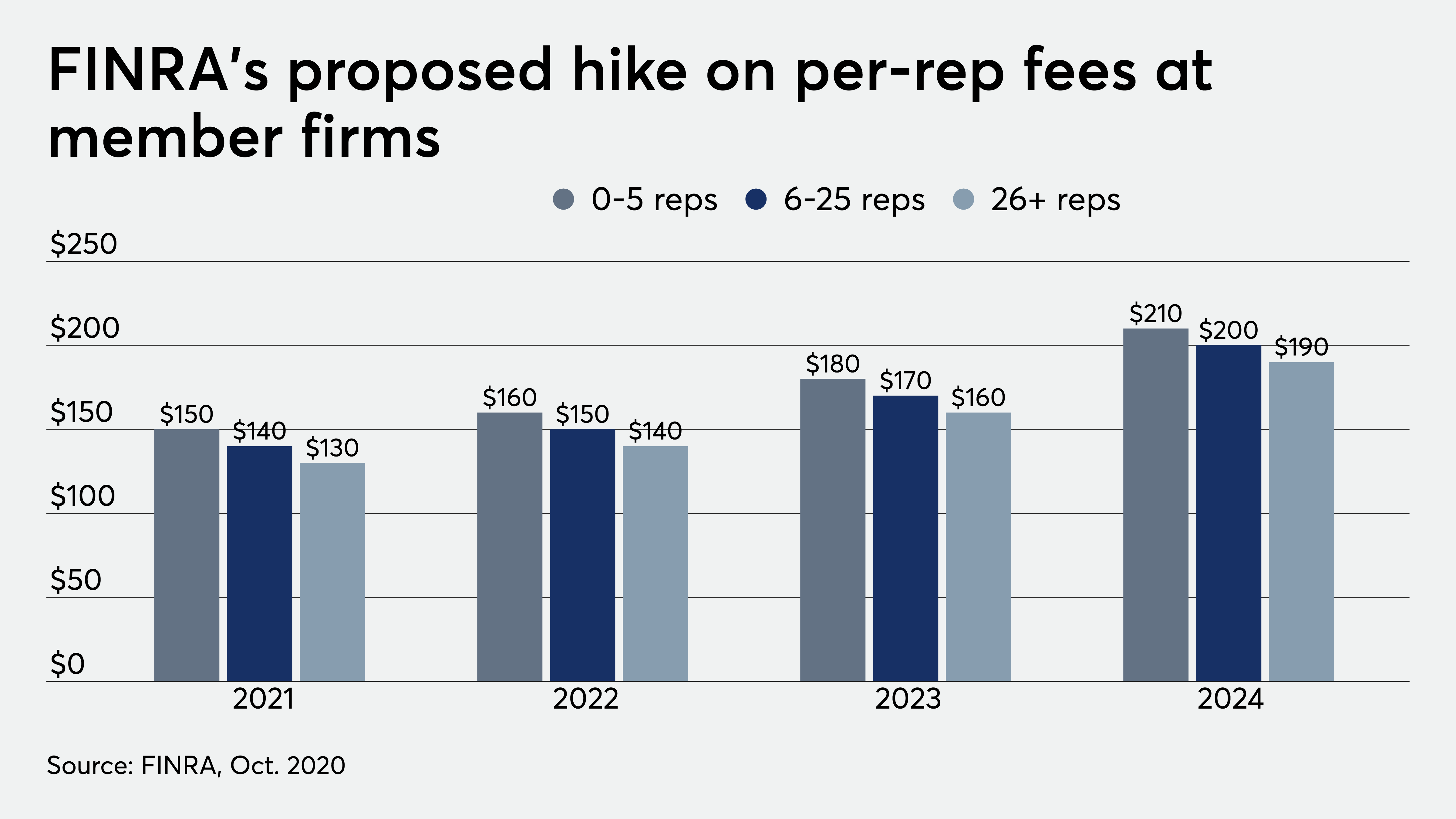FINRA will raise five of its membership fees in an attempt to cut annual losses, according to a regulatory filing the regulator filed with the SEC earlier this month.
The organization’s costs have exceeded its expenses for most of the last decade, and it’s pulled approximately $650 million from its investment portfolio — otherwise known as its financial reserves — since 2010, according to FINRA.
The proposed fee increases, which would be fully implemented in 2024, would generate an additional $225 million per year for the self-regulatory organization.
FINRA’s request to the SEC comes as the commission’s Office of Compliance Inspections and Examinations is increasingly reliant on FINRA to regulate the brokerage industry.
In 2016, Marc Wyatt, a former OCIE director, said in a 2016 keynote address that his office “will be somewhat more dependent on them” for broker-dealer examinations.
Indeed, the SEC’s enforcement department had only 1,000 employees in 2019, despite its responsibilities to oversee thousands of investment advisors, broker-dealers and mutual funds in addition to transfer agents, clearing agencies, national securities exchanges and municipal advisors — not to mention the four regulatory organizations it supervises, including FINRA.
FINRA — in comparison — is solely responsible for broker-dealer and market regulation and had 3,400 staff members at the end of 2019. The organization is not a government agency, and is not reliant upon Congress for funding.
FINRA’s fee proposal to the SEC would boost member firm fees from gross income, trading activity, number of reps, registrations and qualification exams, according to the SEC filing.
The fee hikes would occur gradually, starting in 2022 and grow incrementally over a three-year period.
In 2024, FINRA says the increase would cost the brokerage industry approximately .22% of its 2019 revenue.
For operations, FINRA is most reliant on the gross income, trading activity and personnel fees, which are used to fund exams, financial monitoring, policymaking and rulemaking, as well as enforcement, according to the SRO.
The regulatory organization hasn’t made any significant changes to its member fees for the last decade, although it did alter its trading activity fee on equity securities in 2012.
In 2010, the regulator doubled its personnel fees and adjusted its gross income fee calculation.
FINRA, which has been operating remotely since onset of the coronavirus outbreak in the U.S., hasn’t been conducting the in-person portion of its cycle examinations for the majority of the year. Its arbitration division has conducted hearings via virtual conferences or phone, and recently said it would continue to do so through January 2021, in part due to state and local government restrictions requiring traveling hearing participants to quarantine.
“All case deadlines will continue to apply and must be timely met unless the parties jointly agree otherwise,” FINRA said.
The SEC launched an office to regulate FINRA, dubbed the FINRA and Securities Industry Oversight group, in 2016. It followed a report from the Government Accountability Office that found the SEC’s oversight of the SRO fell short.
FINRA’s fee proposal was published in the Federal Register Oct. 7. The SEC will accept comments on the proposal until Oct. 28.
Leave a Reply